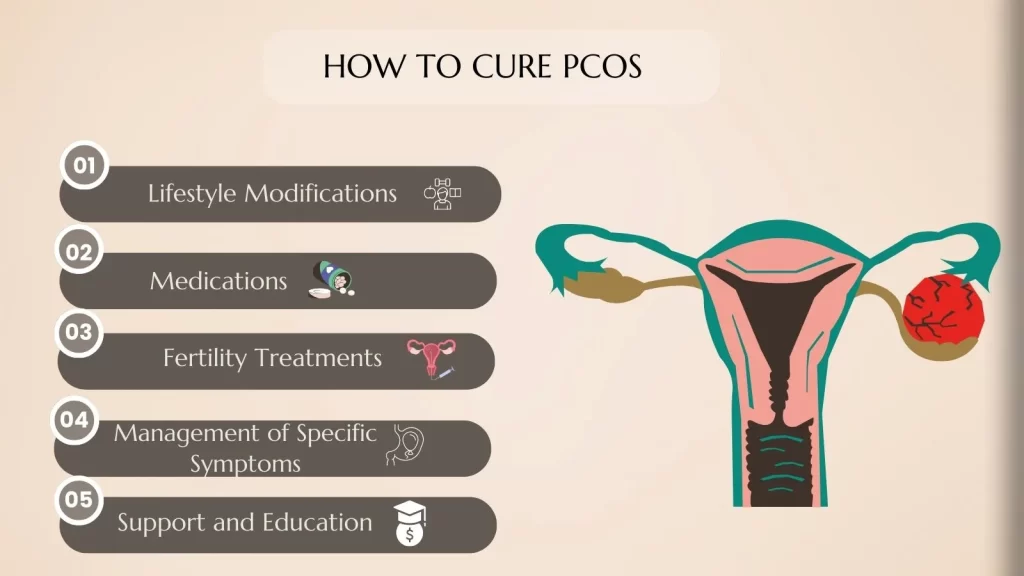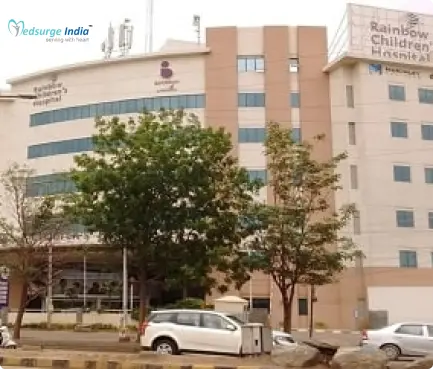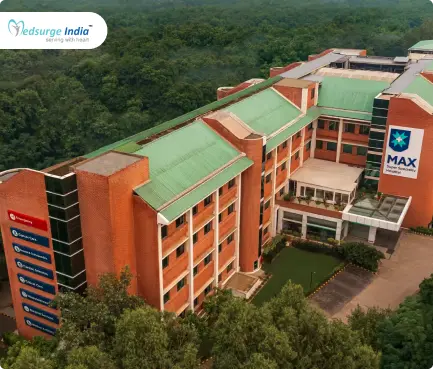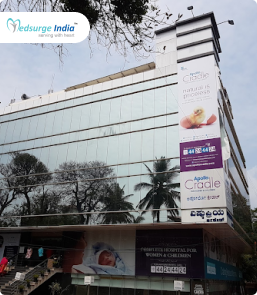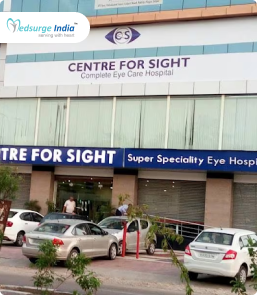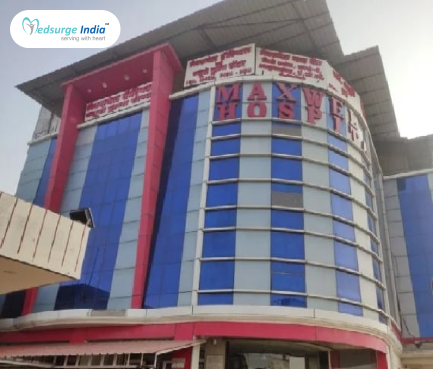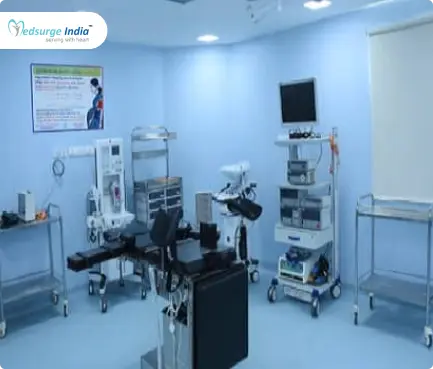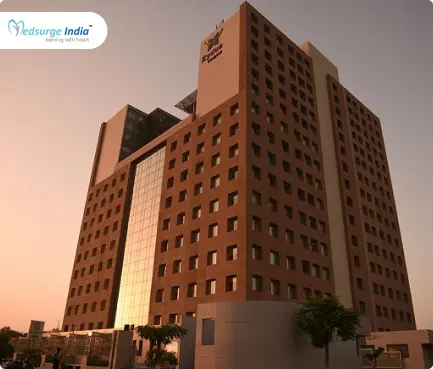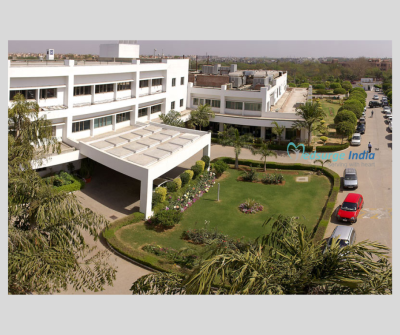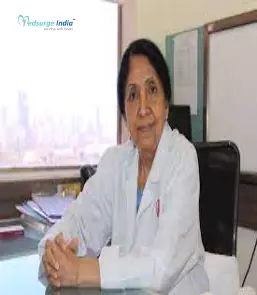
Polycystic Ovarian Syndrome, or PCOS, is a result of today’s lifestyle and behaviors and is a common hormonal disorder affecting millions of women worldwide. It is characterized by a range of symptoms, including irregular periods, excessive hair growth, acne, and difficulty conceiving. While there is no cure for PCOS, effective treatment options are available to manage the condition and alleviate its symptoms.
In India, one in every ten women has PCOS, according to a recent study. The age of the patient will determine how much PCOS treatment will cost. It is an endocrine system illness that affects women between the ages of 14 and 40. One of the main reasons why women struggle to conceive is PCOS or polycystic ovarian syndrome.
The cost of PCOS Treatment in India, including pre-transplant examination, surgery, and other fees, is relatively lower than the cost of treatment in many other countries. Furthermore, if an Indian patient wishes to seek in-house medical services, the PCOS Treatment cost in India is far lower than in other national hospitals around the globe.
What Is PCOS
When your ovaries the organs in charge of generating and releasing eggs generate an excessive amount of hormones, a hormonal imbalance known as polycystic ovarian syndrome (PCOS) results. If you have PCOS, your ovaries produce an abnormally high number of androgens. Your reproductive hormones fall out of balance as a result. Missed periods, irregular ovulation, and unpredictable menstrual cycles tend to occur in people with PCOS.
On ultrasound, tiny follicular cysts (fluid-filled sacs containing immature eggs) may be seen on your ovaries as a result of an absence of ovulation (anovulation). However, despite the label “polycystic,” PCOS does not require that you have ovarian cysts. The ovarian cysts are neither uncomfortable nor hazardous.
Infertility in women and those who were designated female at birth (AFAB) is frequently caused by PCOS. It may also raise your risk of developing additional medical problems. Based on your symptoms and if you want to get pregnant, your doctor can prescribe treatment for PCOS.
PCOS Treatment Cost in India
PCOS treatment Cost in India starts from INR 1,12,000 (1,350 USD). In comparison to other nations, the cost of PCOS treatment in India is relatively affordable. In addition, the standard of the medical services and treatment provided there is on par with that of the best hospitals in the world. The expense of treatment even after taking travel, lodging, and food costs into account.
What Causes PCOS in Women
Despite the fact that the primary causes of PCOS are unknown, there are a few elements that are frequently linked to the overproduction of androgen. Following are a few potential contributing factors to PCOS:
- Heredity: Research suggests that a number of genes may be related to PCOS. There is a higher likelihood of being diagnosed with PCOS if you come from a family that has the condition.
- An excess of androgen: The ovaries may create a lot of androgens if you have PCOS. An overabundance of androgen prevents ovulation. The eggs may not always be released from the egg-producing follicles. Additional negative effects of too much androgen include acne and hirsutism.
- Excess Insulin: Insulin is a hormone that aids cells in absorbing sugar from food and converting it into energy or storing it as glucose for later use. High levels of insulin and sugar are produced in the body as a result of insulin resistance, which occurs when the body’s cells cease responding to it normally. This situation of too much insulin may boost testosterone production, disrupting ovulation.
- Inflammation on a low level: In reaction to an infection or injury, white blood cells produce various chemicals. This response is referred to as low-grade inflammation. According to a study, patients with PCOS go through a particular form of persistent, low-grade inflammation that stimulates the production of androgens in their polycystic ovaries. This could lead to difficulties with the heart and blood vessels.
What Are The First Symptoms Of PCOS
PCOS’s most typical warning signs and symptoms are as follows:
- Periods that are irregular include missing periods or not menstruating at all. Furthermore, it might cause excessive menstrual bleeding.
- Unusual hair growth: If you have hirsutism, your arms, chest, and abdomen may suffer substantial hair growth. Up to 70% of those with PCOS experience this.
- PCOS can lead to acne, in places like the chest, back, and face. Your acne may persist throughout your adolescent years and be challenging to manage.
- Obesity: Between 40% and 80% of those who have PCOS are obese and struggle to maintain a healthy weight.
- Skin darkening: Patches of dark skin are possible, particularly in the folds of your neck, armpits, groin (between the thighs), and under your breasts. Acanthosis nigricans is the term for this.
- Egg sac cysts are a common ultrasound finding in PCOS patients’ ovaries, which are often bigger or show many follicles.
- Skin tags: Skin tags are little, protruding skin flaps. They frequently appear on your neck or in your armpits.
- Hair loss in patches: People with PCOS may experience hair loss in spots or begin to go bald.
- The most frequent factor contributing to infertility in AFAB people is PCOS. It is possible that irregular or infrequent ovulation will prevent conception.
How Is PCOS Diagnosed
Your doctor will question your medical history as well as your present symptoms. Also included is a physical examination. Most probably, this will include a pelvic exam. This examination evaluates the condition of your reproductive organs on the inside and the outside.
The signs of PCOS can resemble those of other illnesses in some cases. Consequently, you could undergo examinations like:
- Ultrasound: In this test, blood arteries, tissues, and organs are visualized using sound waves and a computer. This test checks for cysts and measures the size of the ovaries. The endometrium, the uterine lining, can also be examined during the test to determine its thickness.
- Blood tests: By doing a blood test it can scan for other hormone and androgen concentrations that are elevated. Your blood glucose levels are also checked by a medical specialist/ professional. In addition, you could get your triglyceride and cholesterol levels checked and examined.
- Examination of the pelvis: During a pelvic exam, your healthcare provider may examine for lumps, growths, or other changes in your reproductive organs.
Your doctor could advise more tests if PCOS has been identified as the cause of your condition. These tests might be:
- Regular assessments of cholesterol and triglyceride levels, glucose tolerance, and blood pressure
- Screening for anxiety and depression
- Obstructive sleep apnea screening
Cost
PCOS Treatment Cost in India
In comparison to other nations, the cost of PCOS treatment in India is relatively affordable. In addition, the standard of the medical services and treatment provided there is on par with that of the best hospitals in the world. The expense of PCOS treatment Cost in India starts at USD 1350, even after taking travel, lodging, and food costs into account.
Factors That Can Affect PCOS Treatment Cost in India
It is possible to consider an array of factors that might affect the total expense of PCOS treatment Cost in India, including:
- Depending on the hospital’s preferences, the PCOS treatment cost in India may vary.
- Skills and understanding of the doctor in the area.
- The patient’s condition, including the nature of their illness and whether or not they need additional treatment modalities.
- The duration of hospitalization and stay for PCOS Treatment in India.
- If Post-operative care is required.
- Prices for PCOS treatment in India vary depending on the hospital and the style of accommodations.
Medsurge India provides the finest PCOS Treatment Cost in India at a reasonable cost, all while being supervised by top medical professionals for patients traveling to India. Click here for the medical visa form.
Helpful – IVF Test Cost in India
Top IVF Hospitals in India
Get Free Cost Estimation
Procedure
How To Cure PCOS Permanently
The symptoms of PCOS can be controlled, but the condition cannot be treated. Due to the fact that someone with PCOS may suffer several symptoms or just one, treatment options can differ. PCOS treatment focuses on addressing your concerns. This could involve infertility, hirsutism, acne, or obesity. Depending on the condition of the patient, lifestyle adjustments and medication may be necessary.
1.Lifestyle Modifications – One of the primary ways to manage PCOS is through lifestyle changes. These modifications can significantly improve symptoms and regulate hormonal imbalances. Incorporating regular exercise, such as cardiovascular activities and strength training, can help in weight management, reduce insulin resistance, and improve overall health. Additionally, adopting a balanced and nutritious diet, rich in fruits, vegetables, whole grains, and lean proteins, can aid in weight loss and hormone regulation. Avoiding processed foods, sugary snacks, and excessive caffeine is also recommended.
2.Medications – In some cases, lifestyle modifications alone may not effectively manage PCOS symptoms. In such instances, doctors may prescribe medications to address specific concerns. Birth control pills are commonly prescribed to regulate menstrual cycles and reduce androgen levels, which can help control acne and excessive hair growth. Metformin, a medication used to treat type 2 diabetes, is often prescribed to manage insulin resistance commonly associated with PCOS. Anti-androgen medications may also be prescribed to address symptoms such as hirsutism (excess hair growth) and acne.
3.Fertility Treatments –For women struggling with infertility due to PCOS, several fertility treatments are available. These options aim to induce ovulation and increase the chances of successful conception. Commonly used fertility medications include clomiphene citrate and letrozole, which stimulate the ovaries to release eggs. In more complex cases, assisted reproductive technologies like in vitro fertilization (IVF) may be recommended.
Management of Specific Symptoms – Apart from addressing hormonal imbalances and infertility concerns, it is essential to manage the specific symptoms associated with PCOS. For example, excessive hair growth can be managed through methods such as shaving, waxing, or laser hair removal. Acne can be treated with topical creams, oral medications, or other dermatological interventions. Additionally, psychological support and counseling can be beneficial for managing the emotional impact that PCOS can have on individuals.
Support and Education
Living with PCOS can be challenging, and seeking support from healthcare professionals, support groups, or online communities can make a significant difference. These resources provide valuable information, emotional support, and an opportunity to connect with others going through similar experiences. Additionally, staying informed about the latest research and developments in PCOS treatment can empower individuals to make informed decisions regarding their health and well-being.
The following PCOS treatments are available whether you wish to get pregnant now or in the future:
- The release of an egg or drugs that cause ovulation: Ovulation is the first phase of an uncomplicated pregnancy. It has been demonstrated that several medications can cause ovulation in PCOS sufferers. While gonadotropins are administered intravenously, the medicines clomiphene and letrozole must be taken orally.
- Surgery: By eliminating tissue from your ovaries that produces androgen hormones, surgical treatment can help restore ovulation. Surgeons rarely carry out this surgery due to the availability of newer drugs.
- When medicine does not assist with ovulation, in vitro fertilization (IVF) is an option for people with PCOS. Before transporting your egg to your uterus, your provider fertilizes it in a lab with your partner’s sperm.
In conclusion, while PCOS may present various challenges, there are effective treatment options available to help manage the condition and improve quality of life. By adopting lifestyle modifications, exploring medication options, considering fertility treatments, addressing specific symptoms, and seeking support, individuals can navigate PCOS with confidence and resilience. It is important to remember that each person’s experience with PCOS is unique, and a personalized approach is essential for achieving the best possible outcomes.
Why Do Individuals Prefer to Have PCOS Treatment in India
India is a particularly popular destination for medical tourists because it boasts some of the greatest medical facilities and services in all of Asia. With the use of cutting-edge technology, the leading hospitals for PCOS treatment in India offer various forms of disease-related care. Additionally, compared to other states or countries throughout the world, the cost of PCOS treatment in India is far lower. A foreign patient can anticipate paying between 50% and 60% less for PCOS treatment in India.
Comprehensive pre-operative examinations, minimally invasive surgical procedures, and post-operative rehabilitation programs are all included while having treatment in India. At these medical facilities, patients may anticipate personalized care, individualized attention, and compassionate treatment. The National Accreditation Board for Hospitals and Healthcare Providers (NABH) and the Joint Commission International (JCI) are two prestigious international organizations that have accredited the hospitals.
How to Choose a Hospital for PCOS Treatment in India
Hospitals that provide PCOS Treatment in India are well-known for their patient care and compassion. Some of India’s best surgeons who are authorities in their fields work at these hospitals. It could be difficult for a patient from outside of the country to find a reputable hospital for treatment. It is a significant decision that must be made while bearing various considerations in mind, such as:
- Quality certificates and accreditations
- Hospital and transportation facility location
- Team of doctors and surgeons
- Advanced diagnostic and therapeutic equipment
- International patient assistance
How Can Medsurge India Help?
Medsurge India is a prestigious support system for patients looking for doctors, hospitals, and specialized treatments. We’ll find the most suitable medical options for you. Following your medical issues, our team will give you a list of certified, reputable, and trusted doctors and hospitals. Apart from that, we offer a treatment strategy that fits your budget and also, we assist patients with obtaining travel authorizations, medical visas, and a multitude of other things.
The Most Important Frequently Asked Questions
Q1: Why Do Women Develop PCOS?
A1: There is no recognized cause for PCOS. But there is proof that genetics are involved. A number of additional elements, major among them obesity, also contribute to PCOS development: higher concentration of androgens (the male hormones). Inconsistent menstrual periods from high androgen levels hinder the ovaries from releasing eggs.
Q2: How Serious Is PCOS?
A2: PCOS is a chronic illness that rises potential long-term health issues. It’s frequently linked to heart issues, high blood pressure, high cholesterol, type 2 diabetes, obesity, depression, etc. It is also frequently linked to uterine cancer.
Q3: Can Women with PCOS Get Pregnant?
A3: Yes, even if you have PCOS you can still get pregnant. One of the most prevalent but manageable reasons for infertility in women is PCOS. The hormonal imbalance in PCOS patients prevents the development and release of eggs from the ovaries (ovulation).
Q4: Is PCOS a Chronic Condition?
A4: This chronic health issue persists even past the childbearing years. Women with PCOS frequently have insulin resistance, which increases the risk of type 2 diabetes even if their bodies can produce insulin.
Q5: Does PCOS Increase the Risk of Miscarriage?
A5: PCOS-related pregnancy complications include miscarriage or an early loss of pregnancy. Early pregnancy miscarriages are three times more likely to occur in PCOS-positive women than in PCOS-negative ones. According to certain studies, metformin may lower the chance of miscarriage in expecting PCOS women.
Top Hospitals for PCOS Treatment in India
Top Doctors for IVF and Infertility
Dr. Rita Bakshi
Chairman
Experience: 30 years of experience
International Fertility Center, New Delhi
New Delhi, India
Dr. Pramod Kumar Sharma
Chairman
Experience: 25 years of experience
Marengo Asia Hospitals Formerly W Pratiksha Hospital, Gurgaon
Gurgaon, India
Dr. Lakshmi Chirumamilla
Consultant
Experience: 10 years of experience
Nova IVI Fertility Clinic, Hyderabad
Hyderabad, India
Dr. Richika Sahay Shukla
Senior Consultant
Experience: 21 years of experience
Miracle Mediclinic Hospital, Gurgaon
NewDelhi, India
Dr. Ruchika Sood
Associate Consultant
Experience: 7 Years
Ferticity Fertility Clinic, New Delhi
New Delhi, India
Dr. Kaushiki Ray Sarkar
Consultant
Experience: 8 years of experience
AMRI Hospitals, Southern Avenue
Kolkata, India
Dr. Puneet Rana Arora
Consultant
Experience: 18 years of experience
UPHI-The Wellness & Surgical Centre Gurgaon
New Delhi, India
Dr. Sonu Balhara Ahlawat
Senior Consultant
Experience: 17 years of experience
Gurgaon
Gurgaon, India
Dr. Parul Gupta Khanna
Consultant
Experience: 9 years of experience
Nova IVF Fertility, Gurgaon
Gurgaon, India

